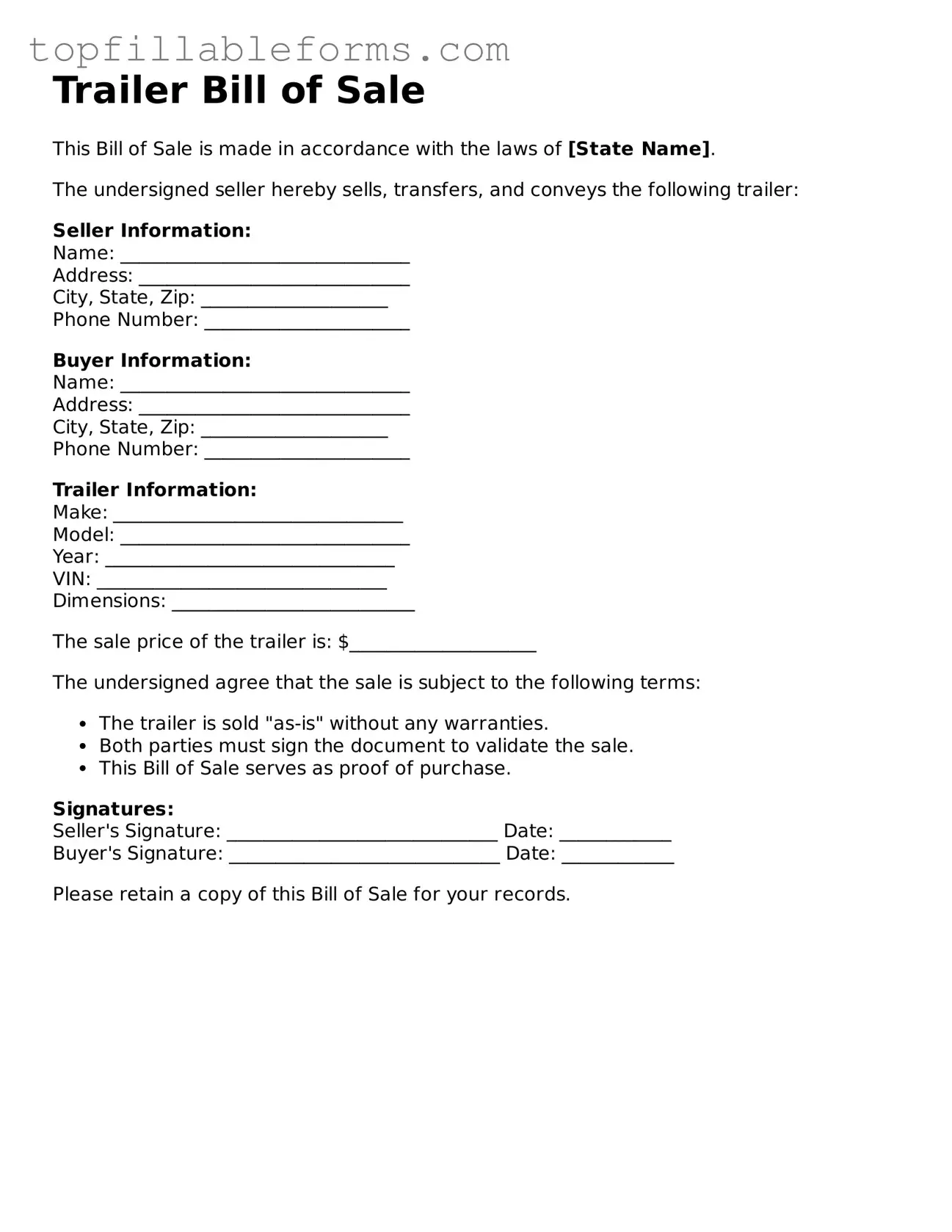Free Trailer Bill of Sale Form
The Trailer Bill of Sale is a legal document that serves as proof of the sale and transfer of ownership of a trailer from one party to another. This form includes essential details such as the buyer's and seller's information, trailer specifications, and the sale price. Completing this document ensures a smooth transaction and protects the rights of both parties involved.
Open Trailer Bill of Sale Editor Here

Free Trailer Bill of Sale Form
Open Trailer Bill of Sale Editor Here
Finish the form now and be done
Finish your Trailer Bill of Sale online by editing, saving, and downloading fast.
Open Trailer Bill of Sale Editor Here
or
▼ PDF File
